They are on the front line of the information war – dealing with disinformation, relaying the latest news, and raising much-needed cash to buy military and humanitarian supplies. They come from all walks of life and live in different countries.
Last January, Kyiv Post brought you Ukraine’s Top-10 YouTube warriors – here are ten more who have caught our eye since.
JOIN US ON TELEGRAM!
Follow our coverage of the war on the @Kyivpost_official.
- Silicon Curtain 67.1k subscribers
British presenter Jonathan Fink from Oxford lets his audience know that he is “fighting Russian bullshit” through his many videos, and that the United Kingdom has been up front giving moral support and armaments.
Fink lived in Russia in the 1990s, knows its history and literature, but also understands “the stubbornness and desire of freedom that Ukrainians have.”
He has more than 300 videos with many intellectual thinkers and raises topics such as: “What is the end game for Russia when it loses the war?” and “Should the West be cultivating links with the Russian opposition to create a new Russia that will not be a threat to Ukraine?”
He recently went to Lviv where he did a live Q&A bringing together many experts on Ukraine. His channel also tackles corruption, hybrid warfare, weaponized conspiracy theories and digital dystopias.
- Anders Puck Nielsen 135k subscribers
Danish military analyst and naval captain at the Royal Danish Defence College, Anders Puck Nielsen, gives a realistic picture of the war and doesn’t try to sugar coat anything to please his Ukrainian and Western-orientated audience.
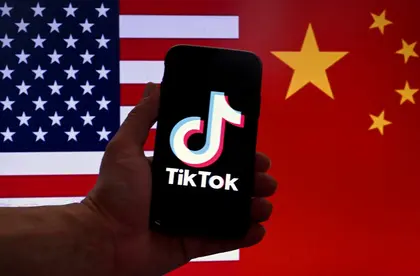
House Passes Legislation to Potentially Ban TikTok Over National Security Concerns
On the subject of Ukraine’s counteroffensive, he says that if Ukraine’s military can secure a foothold on the eastern bank of the Dnipro River, he believes, “it will be the most significant development on the front line in over a year.”
In a previous video on whether Ukraine should enter into peace talks with Russia and their potential for success, Anders says that Russia will insist on three minimum demands for peace which Ukraine will never agree to.
It will insist on getting all its annexed territories. Last year, Russia annexed Kherson, Zaporizhzhia, Luhansk and Donetsk, not to mention Crimea in 2014. It is now written into the Russian constitution that these are part of Russia, so because they don’t control all these oblasts, they would expect Ukraine to give them the territory that their army has failed to militarily conquer.
The other two demands would be no prosecution of war crimes and reparations to compensate Ukraine for any war damage. In effect, Anders argues, that Russia would expect reparations from Ukraine.
- Brandon Mitchell 72.1k subscribers
Canadian combat medic volunteer Brandon Mitchell gives insight into the work of his battalion and how it raises money through social media using his YouTube and Instagram accounts.
In an interview with Times Radio, Brandon was quite blunt: “If you don’t have social media in Ukraine, you don’t get funding. I have to go on the internet and communicate with people during my time off, relive my experiences so that I can get those generators or radios. Social media helps you get an extra pair of socks and boots.”
In the past he has raised enough money to buy more than 100 diesel generators for Ukrainians around Bakhmut to keep the lights on during the many power outages.
In an article for CBS News Brandon explains how he escaped death twice in a day. He had rescued one family fleeing Russians near Bakhmut and was returning to evacuate more people in the night when his car was engulfed in flames after an artillery attack. He had driven over two anti-personnel mines which left him with a ruptured eardrum and a traumatic brain injury. However, this incident didn’t deter him from carrying on his work in Ukraine.
In an unedited video, Brandon chats to a British guy called Harley, who clears mines in Kherson. Harley ponders on how many lives he thinks he may have saved. Brandon responds that they will never know.
While talking Harley leaves a sobering thought that even when the war finishes, they will need a month of demining for every day of the war. Harley tells Brandon that what the Ukrainian military has achieved on a “drip feed [of weapons] from NATO has been phenomenal.”
- Combat Arms Channel 474k subscribers
He doesn’t give his name, but we assume by his accent that he is an American marine. His videos focus on all areas of combat from Philippine Special Forces to Indian Para SF Commandos. On Ukraine, he comments on footage showing various battalions in action on the battlefield.
One from early November this year shows the 3rd Assault Brigade pushing into the urban settlement of Andriivka. The marine explains what is happening, and analyzes it from his own military experience, based on the global war on terror.
We see the devastated area up close and follow every step the soldiers make, ducking, diving and hearing a discussion on whether the drone above them is a Ukrainian or Russian one. Under fire, a Ukrainian gets injured but will live. The brigade achieves its mission of gaining a foothold on the outskirts of Andriivka.
- Pavlo from Ukraine 225k subscribers
Pavlo promises to be your YouTube mate, inviting you into his family life, and the places they visit. He takes us on a trip in his jeep to the Ukrainian countryside where he goes mushroom picking with his wife Liuba and dog Jack. He also shows us his new house and all the work that has been done to improve it, including insulating it to keep it warm in the winter due to blackouts.
Another interesting episode is a trip to Odesa last winter. Initially, beaches were closed due to the war, but when they arrived they had gradually been opened up. The beaches have been demined, people are returning, illustrating the resilience of Ukrainians wanting to lead a normal life. People are walking on the streets disregarding the air raid sirens and elderly folk sitting outside on tables playing chess despite the war.
While in Odesa he stays in the cheapest hotel, which are 18th century buildings. The windows are covered in tape in case of explosions, to keep shards of glass from flying. He spent three nights in August, close to the city center and paid $28.88.
- Professor Darin Gerdes 42.8k subscribers
Professor Gerdes teaches Management at Charleston Southern University. This includes leadership, power and influence, and behavior. A month into the war, Gerdes in his early videos was already assessing President Zelensky’s skills as a wartime leader. He pays him credit for staying in Kyiv with his wife and not taking a ride out of the country.
“In his speeches when he talks to the British Parliament, he quotes Churchill about fighting on the beaches, to the Canadian Parliament he asked Justin Trudeau ‘how would you explain to your son why bombs are falling in Edmonton?’
“He brought the war home to them emotionally,” says Gerdes. “Speaking to Israel, he quoted Golda Meir [Israel’s fourth prime minister, who was born in Kyiv], who said, ‘we intend to remain alive, but our neighbors want to see us dead.’”
When Gerdes celebrated his 1,000th video, he talked about 12 points that he is certain about Russia. Among them are his impressions that he perceives Russians as warlike. That it is not NATO that is moving East, but former Warsaw Pact countries are running away from Russia whom they see as a threat.
For the Professor, Russia has a racist culture. “Politically Ukraine is worlds apart from Russia and they can’t stand this. Russia’s strength,” he says, “is also its weakness. It can’t defend every area and Ukraine is hitting them everywhere.
“Demographics is a problem. Russians can only restore their population through migration, but nobody wants to go there. The only way they can replenish it is by stealing Ukrainian children.”
- The Enforcer 156k subscribers
The Enforcer channel supports a charity called “Razom for Ukraine!” which has raised nearly $7,000 to help pay for Ukrainian soldiers to receive a college education in the field they choose after the war.
The stream takes 10 minutes to download and fires up its audience with patriotic military songs including the Ukrainian National Anthem showing footage of the Ukrainian military blasting the enemy.
Recent videos have included topics such as the Ukrainian Airborne Assault Troops who face daring missions in some of the frontline hot spots. Clips feature the Security Service of Ukraine (SBU) using drones to knock out Russian vehicles as well as discussions on the weaponry being used by Ukrainian soldiers such as Israeli Uzi submachine guns.
The two commentators, Matthew and Andrew, also discuss the video clips they show and give answers to questions on their live chat line and hold opinion polls.
- UkrainianCanadian 24.4k subscribers
The UkrainianCanadian gives regular map and news updates on the war. Chris talks about the “massive zombie attacks” on the front line, which he argues need to be held back by reinforcing current positions, building more trenches and doing multi-echelon defenses.
He offers his comments and asks for viewers to respond. On Ukraine’s counteroffensive, Chris sides with General Zaluzhny in not following the US plan to go headlong in without air superiority and long-range missiles. He also says that Ukraine’s mistake was in underestimating Russia’s defenses and tolerance for huge casualties.
There was also a false image that Ukraine could get the job done in a few months. Chris believes that from day one of the full-scale invasion Ukraine should have started building more of its own factories to produce weapons instead of relying on its Allies.
- Olga Reznikova 228k subscribers
Olia’s channel is dedicated to all things Ukrainian. In her videos she tries to explain and reveal the very essence of her culture, language, traditions, rules, and interesting places in Ukraine which you won’t want to miss on your next visit.
She offers invaluable advice for travelers while also throwing in some unique things about Ukraine that will make you laugh. In her video “Why Ukrainians Complain About Life Abroad” she gives the example of a mother who has a child with a fever taking it to see a doctor.
In the UK you would be hard-pressed to see a doctor so would rush your kid to the Accident and Emergency doctor and wait for hours. The other alternative would be to get a diagnosis over the phone, and drugs needed to resolve the problem. In Ukraine, the situation would be different. You see a doctor who would examine your child and give a list of drugs needed. From the Ukrainian mother’s point of view, according to Olia, it would be not so much about the medication, but the lack of attention provided.
- Orest Zub 16k subscribers
Globetrotter and blogger Orest Zub encourages you to visit Ukraine. The Lvivite has been to more than 120 countries including many conflict regions and could not have imagined that war would end up on his doorstep. On travel safety advice to Ukraine, he says, when you think of a country at war, you imagine guerrilla warfare and street battles.
“In Ukraine it’s not like that. You have a front line in the east of the country, which hasn’t moved much for a year. The only risk is if you go there, and that won’t happen because there are checkpoints 50km from the frontline.”
Speaking at a travel festival in the Hungarian capital, he said: “The rest of Ukraine is like the streets of Budapest, people walking their dogs, kids going to school, restaurants pouring drinks to their customers. The only other risk to civilian life is being hit by a missile.
“Considering the size of the country and the number of rockets being fired, the chances of getting hit are a thousand times smaller than getting hit in a traffic accident in Budapest.”
As for getting around in Ukraine, trains are its lifeblood. Intercity fast trains take five hours from Lviv to Kyiv, or sleeper trains from Lviv to Kharkiv take 15 hours.
You can also highlight the text and press Ctrl + Enter


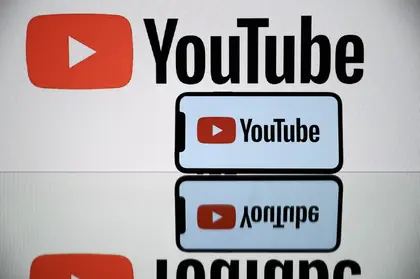
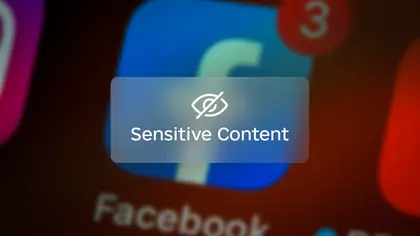
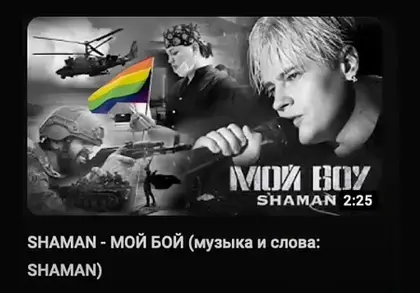
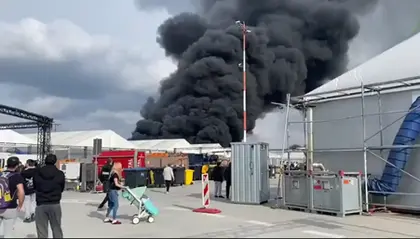
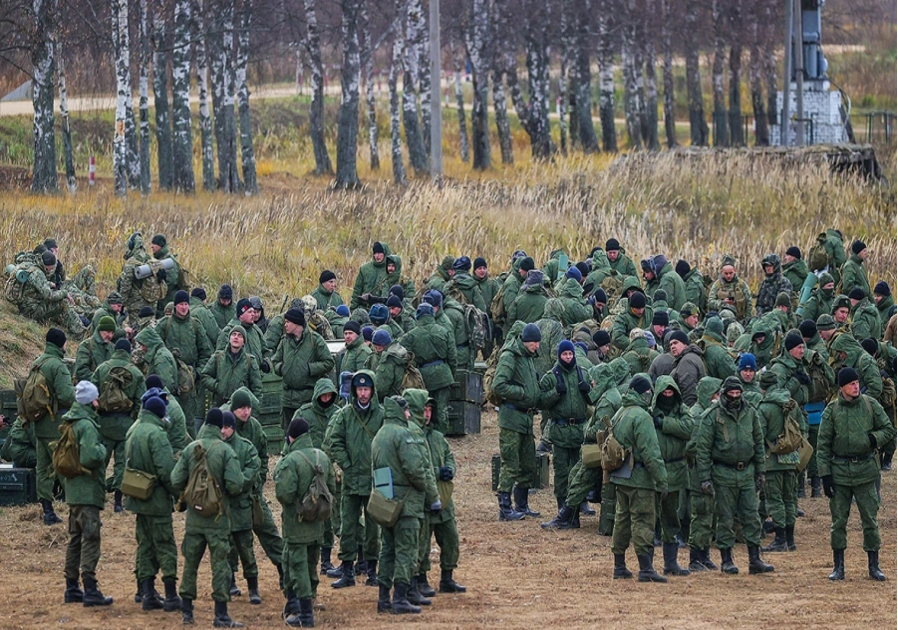
Comments (41)
How could you leave out Jake Broe?
He’s a former US Air Force officer with a Master’s degree in International Relations. Every other day he shows the latest news from the English-language Ukrainian press (including the KP), independent Russian media, the ISW, the UK MOD and other sources and offers analysis of what those developments mean. He shows video clips from Ukrainian and Russian sources, including truly alarming subtitled clips from Russian state TV.
For a well-curated roundup of recent events with excellent analysis, Jake is hard to beat.